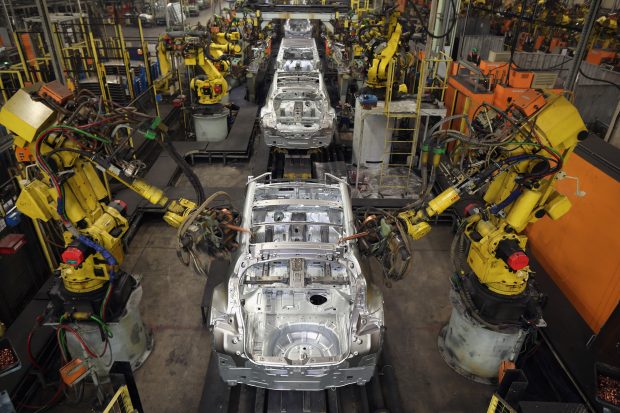Last week, visiting friends in Italy, I had an epiphany in two car journeys. The first ride was in a spiffy-looking new Fiat 500 I’d rented. I’d been excited about driving this pretty update of a classic Italian design. Yet the brand new cinquecento was wheezy even as I drove it off the airport, and arthritic on the autostrada, petulantly ignoring my demands on the accelerator even as I bullied it with gearbox and clutch. Challenged by the steep ascent to a hilltop trattoria, it sputtered to a halt and demanded the eviction of two of my passengers (my hosts; a faux pas). This was a voyage of shattered dreams. Renting such an underpowered car had been a mistake; how could anyone dream of buying one?
The second ride was the same hill challenge, this time experienced as a passenger in my host’s ten-year-old Ford Galaxy. Have you seen photos of Boris Johnson’s 14-year old, battle-worn Toyota Previa? My friend’s Galaxy is, in its state of banged-up entropy, a rival for the Foreign Secretary’s antediluvian minivan. Its scuffs and dings merge into one another, giving its bodywork a rough-hewn profile its designers could never have imagined. Its door mirrors are a matching pair, insofar as they are both held together with gaffer tape. Which is not to say the car has never been repaired – it has been to a punk rock bodyshop, which gave it one door an entirely different colour to the rest of the vehicle. Needless to say, my friend’s idiosyncratic Galaxy is a sure-footed beast of a car, its suspension and brakes tight as a drum, its turbodiesel a symphony of Teutonic excellence as it whisked me up the Latium Hills.
And so the clouds parted – surely the superiority of my friend’s Galaxy demonstrates that we don’t need to buy new cars? Britons have been doing this in spades ever since the global financial crisis – so much so that the average UK car is just six years old, versus the EU average of 9.7 years. (And EU cars are themselves young by global standards: the average car in the US and Canada is nearly twice as old, at 11.5 years, and our friends in Japan and New Zealand manage the morning commute in jalopies that are 12.6 and 14 years old, respectively.) Of course, the UK is a substantial car manufacturer – yet our car exports are small relative to the gigantic extent of our car imports: Open Europe has estimated that car imports from the EU, at £13.95 billion annually, are the second largest component of our trade deficit with the EU, after food and drink. Of the top ten cars sold in the UK, only three are built here; and even then, the average UK-built car has 70 per cent foreign componentry.
Britons, apart from Boris and my friend, are buying all these new cars because they seem cheap, thanks to low interest rates. Ten years ago, in 2006, about 45 per cent of new cars in the UK were bought on finance deals. Today that number is above 80 per cent, thanks to the prevalence of Personal Contract Purchase (PCP) deals – or ‘Ponzi Car Purchase’, as they are colloquially known. The good news about PCP is it gives consumers certainty over their budgets, as they pay a fixed amount monthly for three years’ use of a new car. The bad news is that fixed amount adds up, and it locks consumers into a cycle: pay the depreciation on a new car for three years, then switch to another new car, and pay the depreciation on that. You will recall that new car deprecation is hefty – so the PCP user is choosing to pay for the most expensive part of a car’s life, and in most cases choosing to do so over and over again.
This is, of course, fabulous business for car manufacturers and their finance arms. Then, having bought more new cars than practically anyone else in the world, we Britons also spend more than almost anyone else keeping them on the road – an average of £695 per year, twelve per cent above the global average.
The UK savings ratio is currently a whisker away from its all-time low. 40 per cent of UK adults have £500 or less in savings. As a nation, we are spending too much and producing too little. Thus cars feel like the contemporary equivalent of Easter Island statues – status products which, while individually demonstrating superiority, are just excessively costly for society as a whole. So perhaps it’s time to find other sources of status? Or just follow Boris in simply forgetting to upgrade or repair our automobiles – at least until our cars are as banged up as an Italian’s or as old as an American’s. That might put some cash back into our bank accounts.






Comments